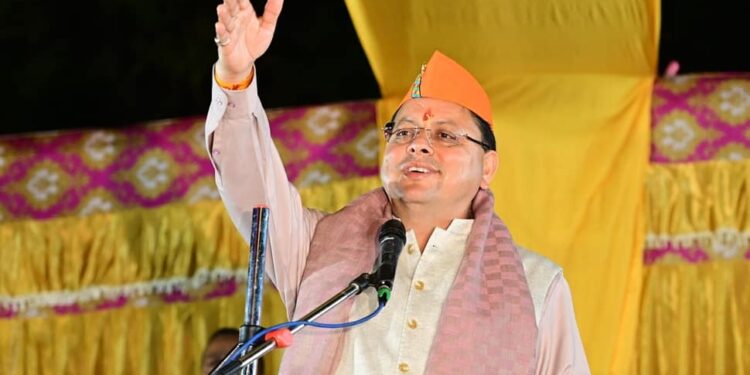The much-awaited Uniform Civil Code comes into force in Uttarakhand on Monday. The BJP has promised it in the run-up to the 2022 assembly polls and a committee was formed to formulate the policy after the party retained power in the state. Now, Chief Minister Pushkar Singh Dhami has stated that the policy will be implemented effectively.
With this, Uttarakhand becomes the first state in independent India to have this policy. Goa has the UCC from the pre-independence era. Dhami has said that all preparations including getting approval of the rules for the implementation of the Act and training of officials concerned have been completed. The Uniform Civil Code (UCC) will bring about uniformity in the society and ensure equal rights and responsibilities for all citizens, he said.
What Are The UCC Laws?
The Uniform Civil Code Act governs and regulates the laws relating to marriage and divorce, succession, live-in relationships and related matters. It sets equal marriageable age for men and women, grounds of divorce and procedures across all religions, and bans Islamic practices like polygamy and ‘halala’.
The UCC makes registration of all marriages and live-in relationships mandatory. Facilities have been created to help people register their marriages online so that they do not have to run around government offices for it.
Another feature of the UCC is that it treats all children as legitimate. The law does away with the term illegitimate in the context of children. The UCC also makes a special provision for defence personnel called “privileged will” which can be made both in writing or by word of mouth.
Any soldier or air force personnel engaged in an expedition or actual warfare or a mariner at sea can make a privileged will for which rules have been kept flexible.
UCC Background
The implementation of the Uniform Civil Code (UCC) was a key promise made by the BJP during the 2022 assembly elections, which saw the party achieve a historic second consecutive term in Uttarakhand—something no other party had accomplished since the state’s creation in 2000. Chief Minister Pushkar Singh Dhami credited the party’s commitment to passing the UCC as a major factor in their victory.
After returning to power in March 2022, Dhami wasted no time. In the very first cabinet meeting, he approved the formation of an expert committee to draft the UCC. The committee, chaired by retired Supreme Court Judge Ranjana Prakash Desai, was officially established on May 27, 2022. Over the next 18 months, the panel engaged with various sections of society to prepare a comprehensive draft.
On February 2, 2024, the committee submitted its four-volume draft to the state government. Just days later, on February 7, the state assembly passed the UCC legislation. It received the president’s assent a month later, clearing the way for its implementation.
To finalize the rules and regulations for the Act’s execution, another expert committee, led by former chief secretary Shatrughna Singh, was formed. This committee submitted its report to the state government in late 2024, marking the final step in the UCC’s implementation process.
Congress Rues Lack Of Consensus
On Sunday, Congress said it is nothing but ‘kickstarting a pilot project’ without proper consensus. Congress spokesperson Abhishek Singhvi said the uniform civil code cannot be state-specific. “Can a uniform civil code be state-specific? You talk of the ‘uniform’ civil code and then make it state-specific,” he said. When asked about the implementation of UCC in Uttarakhand from Monday, he told reporters here, “This is nothing but an attempt to fast-track the process, to have a pilot project, before you can impose… Because you don’t have a consensus. So you do it like kickstarting a pilot project.” He said the phrase UCC itself means there has to be uniformity in implementing it.
Foundation Of Harmonious India
Chief Minister Pushkar Singh Dhami said the UCC will lay the foundations of a harmonious society where there is no discrimination against any religion, gender, caste or community. “We are fulfilling our commitments. The abrogation of Article 370 in Jammu and Kashmir was an instance of it. The Indian republic stands firmly today under the leadership of Prime Minister Narendra Modi…Under the leadership of Prime Minister Narendra Modi, we made a commitment to the people of the state about bringing the UCC in the run-up to the 2022 assembly elections. We took it up on a priority after forming the government. The UCC was drafted and an Act on it was brought. We are now going to fulfil that commitment fully and formally on Monday….It will be in keeping with the prime minister’s vision of creating a harmonious India where there is no discrimination against any religion, gender, caste or community,” he said.







